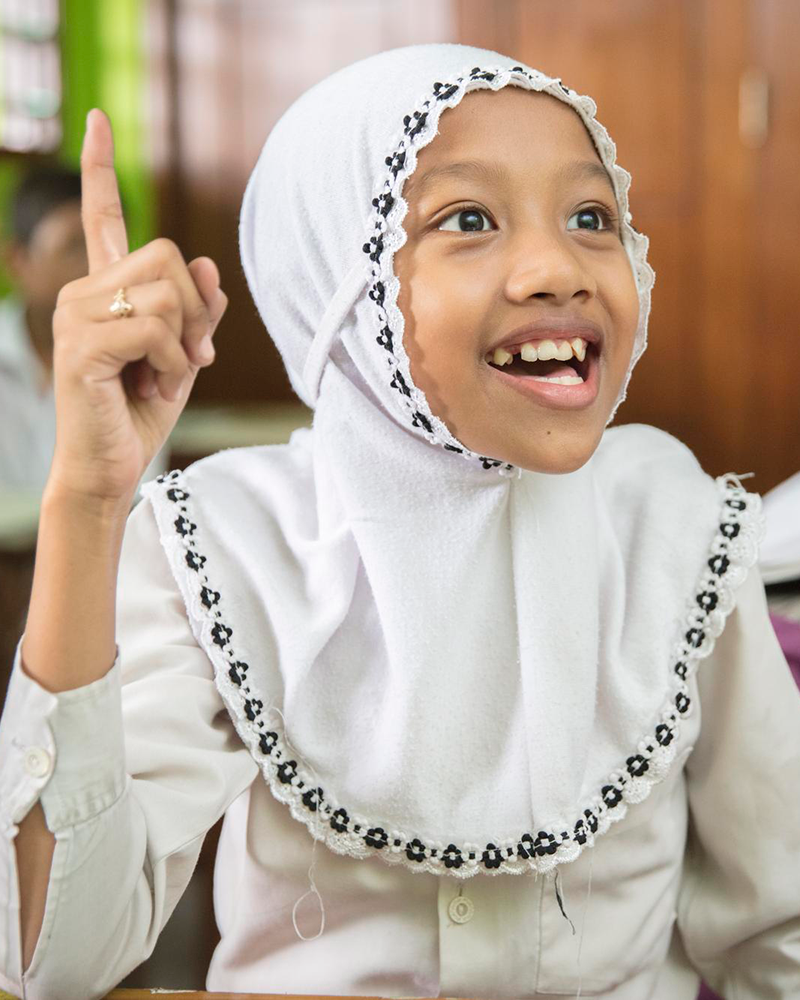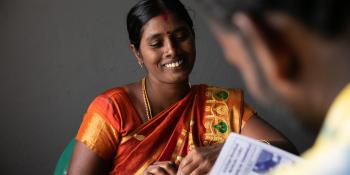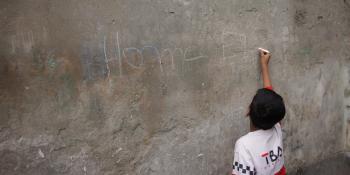
Contact us at [email protected] to learn more or arrange a video call.
Challenges
Around 1,600 houses are inadequate and need to be rebuilt or repaired.
A lack of latrines and sewage systems means that open defecation is common. Many people do not understand the need for better personal hygiene.
Seventy percent of water sources are contaminated, making it unfit for drinking and domestic purposes. Diarrhea and waterborne diseases including cholera present serious health risks.
The local environment is dirty and polluted. Household waste is dumped on the streets and in water courses. Plastic waste is a major and growing problem.
Residents joke that Mauk has three suns. There is little shade to escape the intense heat.
Nearly 9,000 households survive on incomes of less than US$1.10 per day. Low levels of education make it difficult to get steady jobs. Families want more opportunities to work their way out of poverty.
Solution
This project is aligned with government programs to improve villages across Indonesia.
Our approach:
- We will build decent, climate-resilient housing. Plastic waste will be recycled and made into eco-bricks. These innovative materials can be used to construct walls, floors and ventilation holes.
- Latrines and sewage systems will be installed. Water sources will be improved. Training will promote better sanitation and hygienic behaviors.
- Trees will be planted and the local environment will be cleaned up.
- People will learn construction techniques, basic finance and how to set up home-based businesses.
- Hundreds of young people will volunteer to work alongside our team of experts to transform the village.
Timescale: Installation could be completed within 12 months. The start date is dependent on local factors such as the monsoon season.
Results and benefits
Around 250 people will live in over 50 safe, decent homes.
They will have a better quality of life and be more resilient to the effects of climate change. Eco-bricks will demonstrate practical ways to recycle waste plastics for use in the construction industry.

Around 200 new trees will provide shade, oxygen and greenery to beautify the village. They will reduce temperatures and dust, and offer a welcoming place for people to meet. A cleaner village will create a healthier local environment.
Fifteen additional families will have proper sanitation systems with latrines and septic tanks. Households will have greater awareness of the advantages of better hygiene.
Another 15 households will learn how to earn more income with a home-based enterprise. Around 70 people will build knowledge and skills in construction.
Thirty more training places will be reserved for government officials and local people to increase the sustainability of the project.
In total, around 500 people will experience a range of major improvements. Approximately 600 volunteers will spread the word and start a movement for change.
Long-term impact
Habitat for Humanity has extensive evidence on the broader impact of adequate and climate-resilient housing.
Risks from extreme weather events and natural disasters are reduced. Families are more self-reliant and able to cope with the effects of accelerating climate change.
Adults with decent homes have better health, mental well-being and quality of life. Women are happier and far less likely to experience domestic violence.

Replacing dirt floors with cement floors improves children’s health and cognitive development.
Education standards improve when children have a comfortable place to study at home.
Children who perform better at school dramatically increase their chances of a better life.
Better sanitation and hygiene practices significantly reduce the risks of water-borne diseases.
Lower unemployment rates and higher incomes have massive long-term benefits. Decreasing the wealth gap increases social equity and cohesion. Livelihoods and economic opportunities are stimulated. Financial security and food security improve.
Effective advocacy could encourage the housing sector to scale-up the use of waste plastics in construction materials. Advocacy could also support government policy improvements for open defecation-free areas and affordable green housing.
Scale-up
With more co-funding, this project could provide houses, sanitation and business opportunities for many more families. Please get in touch to request a tailored proposal if a higher level of investment is possible.
Get involved
The co-funding organization will have many opportunities to participate. For example, staff could volunteer to help with installation or join the opening ceremony with local government officials.

